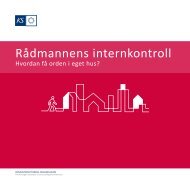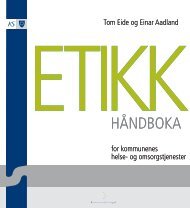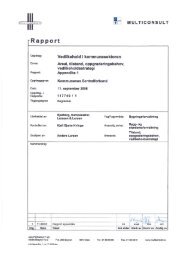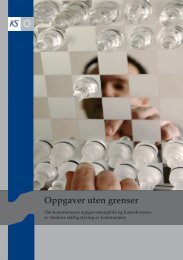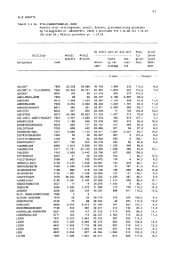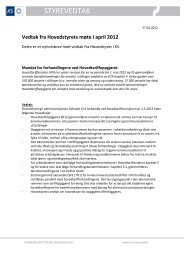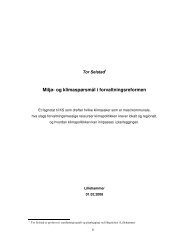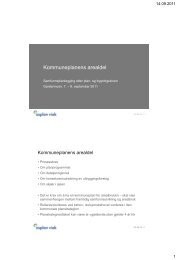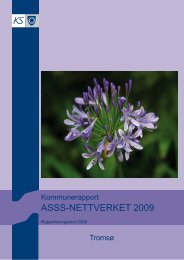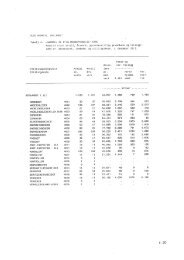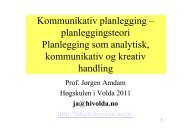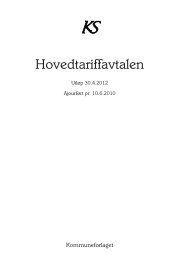Lojal iverksetting eller målrettet medvirkning? - Interreg.no
Lojal iverksetting eller målrettet medvirkning? - Interreg.no
Lojal iverksetting eller målrettet medvirkning? - Interreg.no
Create successful ePaper yourself
Turn your PDF publications into a flip-book with our unique Google optimized e-Paper software.
10<br />
study. The first stage comprised general interviews in fifteen<br />
municipalities and five counties, followed by more thematically<br />
focused interviews in four municipalities.<br />
The EEA agreement as a regulatory vehicle for local councils<br />
Our investigation found that the municipal sector in Norway is<br />
profoundly and increasingly affected by the EU via the EEA<br />
agreement. The regulatory vehicle, which is originated in the EU<br />
and is incorporated into the body of Norwegian law via the EEA<br />
agreement comes with a comprehensive set of criteria for local<br />
authorities to follow. At the same time, the EEA agreement offers<br />
new opportunities which if taken, will help communities and<br />
services develop, <strong>no</strong>t least by means of the various European<br />
programmes. It means, in other words, that the agreement<br />
concerns all aspects of municipal responsibilities.<br />
The municipal sector and the EEA agreement<br />
There is wide variation in the approach taken by municipalities to<br />
the EEA. It is a relatively <strong>no</strong>n-systematic variation, but certain<br />
differences tend to show up between working in projects funded<br />
by EU programmes and harmonisation of by-laws, and between<br />
small and large municipalities/counties. The latter have a more<br />
pro-active stance on programme implementation. The most active<br />
councils apply the longer-term perspective, working systematically<br />
with a strong technical and political foundation. They look to the<br />
chances to profit from participating in programmes of relevance to<br />
their obligations. The less active councils are more likely to<br />
proceed in an ad hoc fashion and be dominated by a few<br />
enthusiasts.<br />
Most of the small municipalities − with a few exceptions − are <strong>no</strong>t<br />
particularly active in projects funden by EU programmes. The<br />
smallest municipalities lack the expertise and are largely ig<strong>no</strong>rant of<br />
the programmes or the significance of the EEA lecal acts. Since<br />
these local councils are supposed to provide the same services and<br />
perform the same tasks as the larger, they may lack both the<br />
capacity and energy to get involved.<br />
We also find variation within municipalities, between those<br />
working on projects supported by the EU (<strong>Interreg</strong>, EU sector<br />
programmes or EEA funding) and those involved in<br />
approximating legal acts with EU origin. The former are more<br />
NIBR-rapport 2008:12



